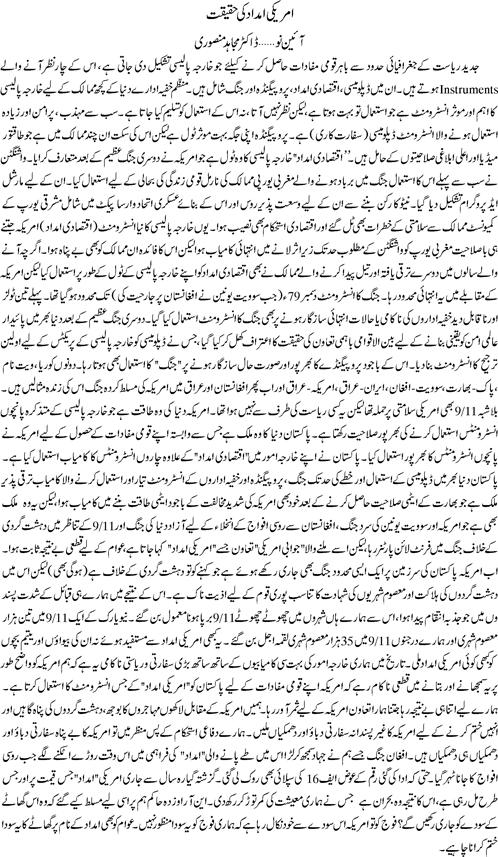The Reality behind America’s Financial Aid
America began giving financial aid to other countries after World War II. America gave money to the damaged European countries (through the Marshall Plan) to help them rebuild their economies and normalize their societies after the war. Through NATO and its military spending and financial aid to other countries, the U.S. sought to weaken the rising influence of the Soviet Union in Europe. The U.S. financial aid, then, was a way for the U.S. to further its own anti-communist agenda, though it undoubtedly also benefited the economies of the countries that received it. Though many countries have also financially aided other countries in order to accomplish their own goals, no country has made this element as strong a part of its foreign policy as America has.
In December 1979, after the Soviet invasion of Afghanistan, the U.S. made war a part of its foreign policy. They did so because when it came to the Soviet Union, they could not win with the three elements of foreign policy previously mentioned. After World War II, diplomacy was used by some countries to maintain world peace. But war had also become part of the foreign policy of countries such as America. The wars in North Korea, South Korea, Vietnam, Iran, Iraq, the Soviet Union and Afghanistan, and the United States’ involvement in all of them, highlight this fact.
America is the only country in the world that has effectively utilized all the elements of foreign policy mentioned in this article. It used Pakistan for its own purpose. Pakistan, too, has implemented foreign policy for its own benefit (some of which have proven successful). In spite of great discouragement from both India and America, it launched its own nuclear program.
At the same time, Pakistan has been busy over the years, furthering U.S. goals, first by fighting the Soviet Union in Afghanistan and now in the war on terror. In exchange for these actions, it received financial aid from America. But this financial aid, instead of ameliorating the unfavorable conditions in Pakistani society, has had an adverse impact on the Pakistani people. America continues to fight its war on Pakistani ground. The war, even if justified, has resulted in the deaths of many innocent citizens here. It has also exacerbated the extremist elements in our society. We have had many smaller 9/11s in our cities. America’s 9/11 caused the deaths of 3,000 innocent people, whereas our dozens of 9/11s have resulted in the deaths of over 35,000 people. The victims of these attacks in Pakistan clearly did not benefit from American aid.
In spite of some of our accomplishments, we are causing great damage to our own country by helping America win its war on terrorism. America has been giving us financial aid to further its own agenda. Helping America (in return for its aid) has been of no use to us so far. Our actions have resulted in the presence of many more extremists and refugees in our country, yet we continue to receive threats from America. We fought the Soviet Union in Afghanistan on their behalf as if we were fighting a holy war. The American “aid” over the past 11 years has done nothing but destroy our society. We keep incurring losses, yet they still ask us to help them? Our army does not want to accept such a one-sided deal. Everyone else in our country should follow in the footsteps of our army and get out of this transaction because it benefits only one party: America.

